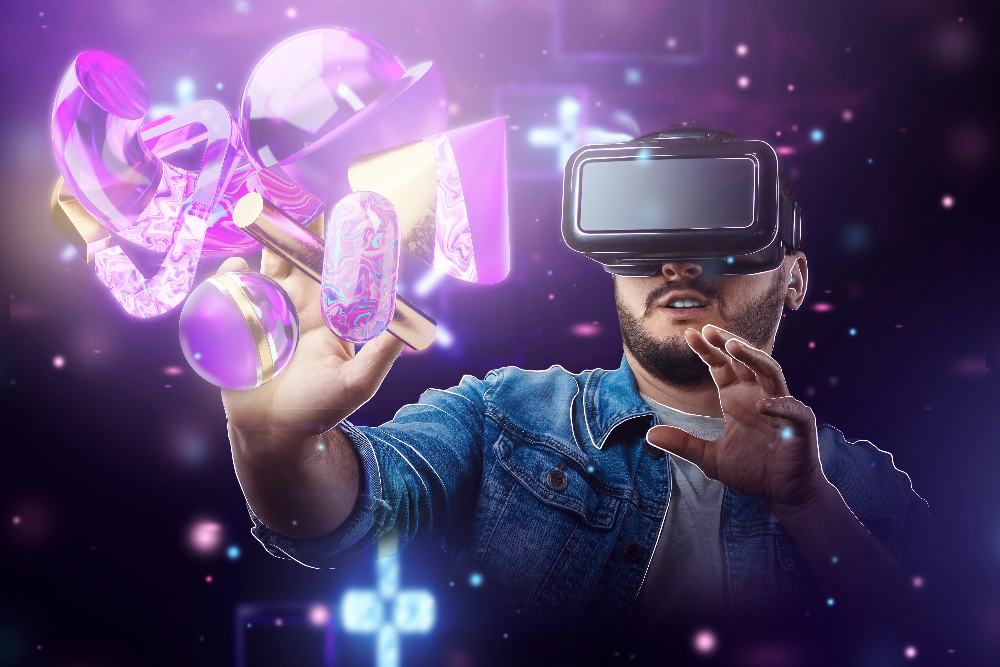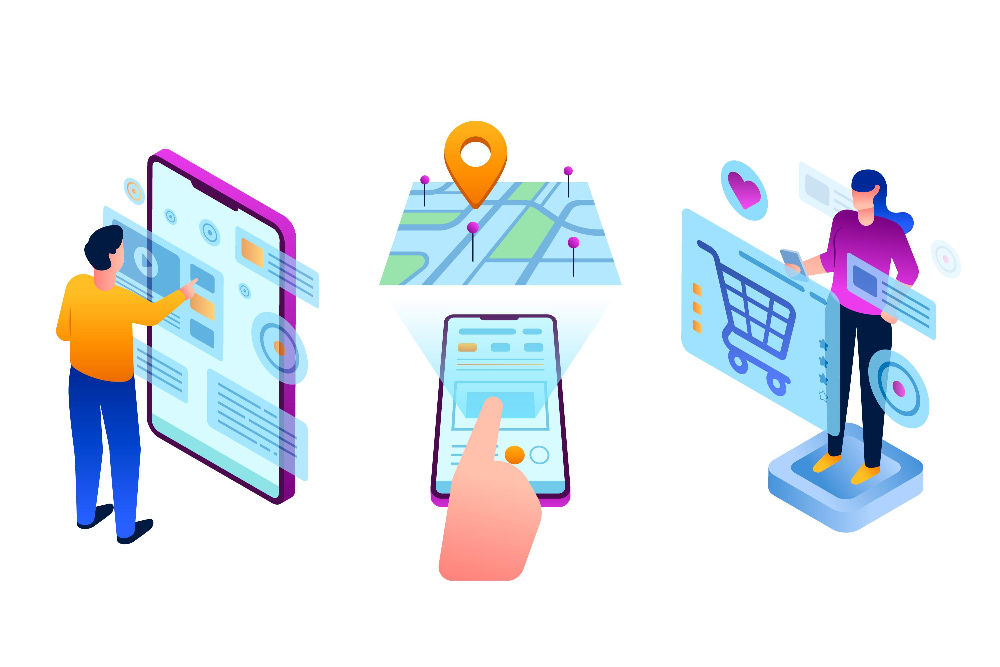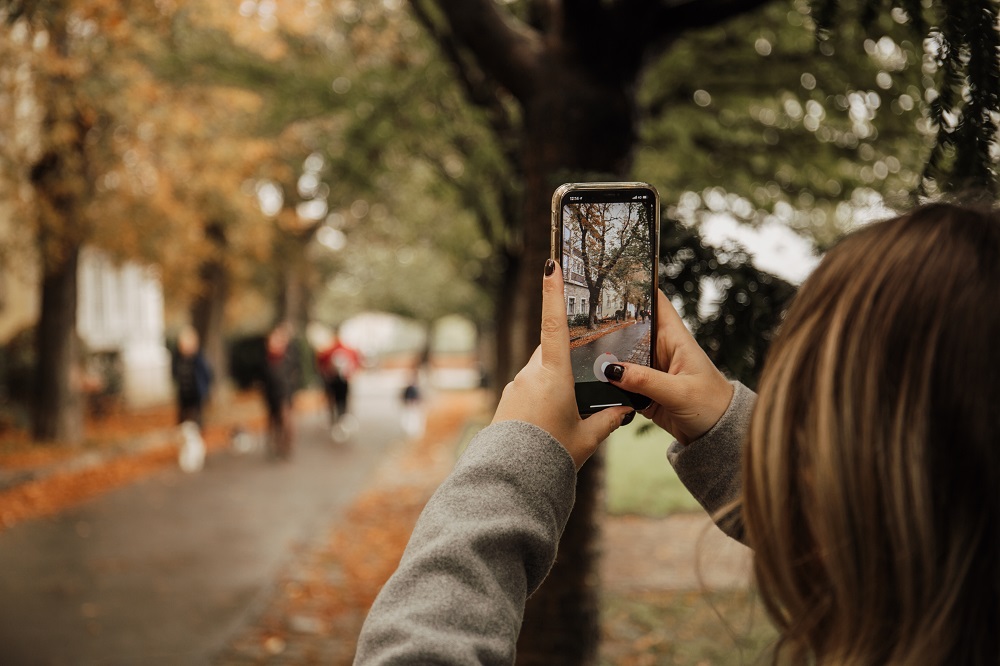AR is a growing trend among many fields and companies nowadays, not just the mobile, gaming or computing business find an appeal in their applications. Let’s see in this article some Augmented Reality examples.
Augmented Reality is becoming a great marketing tool for companies, as it allows users to have a better experience with brands by combining reality with images and virtual objects in real time.
This is a way that undoubtedly surprises people nowadays, who thanks to technology have been more visually and aurally impressed, and that’s not bad, on the contrary, it makes users remember the action, and in turn, the brand.
In order for you to know a little more about what Augmented Reality is, we will explain below what this great interactive experience can do.
What is Augmented Reality – AR?

Augmented Reality (AR) is the use of visual information in the real world through devices such as cell phones, tablets, computers, among others. In addition, it has a great versatility which allows it to be implemented on different occasions, thus achieving different objectives.
All this has allowed this technology to revolutionize the world of digital marketing, so many large companies use it to build even more loyalty with users and thus stay in time.
That said, we will tell you what characterizes Augmented Reality:
- It combines the real and virtual world.
- It relies on information with visual material.
- Interaction occurs in real time.
- It adapts and interacts to the environment in which it is.
- It uses the three technological dimensions.
It is important to clarify that AR is not the same as Virtual Reality, since the former includes digital components in the physical world in which we are; while the latter creates a new environment and is detached from the real one.
What is necessary to apply Augmented Reality?
For it to be applied, three fundamental components are needed:
- A real object that is the reference for the interpretation and creation of the virtual object.
- The camera through which the image of the real object will be transmitted.
- A software responsible for interpreting the signal transmitted by the camera.
- Through the camera the real object is transmitted to the software, which receives the image and combines it with 3D projections.
These projections, in turn, are introduced into the image and superimposed on the physical environment, reflecting the result of this technology to the user.
What is Augmented Reality for?
Although initially this technology was more intended for video games, many brands from various segments (fashion, entertainment, education, medicine, education and others) began to apply Augmented Reality in marketing in order to have a greater impact on the minds of their users and future customers.
This positively transforms their interaction with people.
Some of the advantages that AR offers to companies are:
- It gives new experiences and impacts users and potential customers.
- Increases brand recognition.
- Increases sales.
- Reduces costs, and in turn, optimizes tasks.
- It makes the difference with respect to the competition.
That is why Augmented Reality is of great help for companies that want to grow much more, stay in the market against the competition, be more efficient and have greater proximity to users by making the consumption of information and products easier, practical and faster.
Even achieve this digital transformation is super necessary because the company will advance with the current times and for this it is necessary to do it hand in hand with technology, which is where people are interacting much more.
This will undoubtedly make the company’s interaction with the customer more personalized, which will create brand loyalty.
What are some examples of Augmented Reality? Let’s take a look

Augmented Reality helps to enhance the real physical world, this is achieved by using visual elements, sounds, or any other type of stimuli as long as it comes through technology. Its goal is to highlight features of the real physical world. As you can see these advantages of this new and high rising tech can be used just in about any field where your brand is.
Your business needs to keep up with the new technology since the customers expectations have changed along the last few years, your brand will have to adapt to the new advances. Its time to get a look of how AR can be added to your marketing strategy. With it, you will be able to give your customers unique experiences, and as a result you will get higher sales.
Example of augmented reality marketing: 7 brands
Below we show you some of the most brilliant examples of Augmented Reality in marketing to give you some ideas and inspiration to help you come up with your own.
1) Netflix
The streaming company launched a marketing campaign to promote season two of the series Stranger Things which consisted of AR/VR lenses on Snapchat. With these lenses the users could record videos of themselves as Demigorgons popping out of the wall of a house seen in the show, as well as AR filters featured in Facebook and Snapchat.
This is an incredibly immersive experience for a mobile app that engages people all over the world in a fun way.
2) Pepsi
Another good example of Augmented Reality in marketing. Pepsi used in 2014 AR tech in a London bus shelter to make it appear as if a lion, UFOs and other objects were flying straight to the pedestrians. This brilliant campaign provided an exceptional experience to the people passing by that also attracted over six million views on YouTube, making it one the most watched advertisement campaigns in Youtube.
In this case it wasn’t necessary to advertise the product, since the experience was so surreal and amazing it gave a word of mouth and created a lot of positive talk about the brand.
3) Doritos
Doritos launched a marketing campaign in UK where consumers scan QR codes wherever they are to win music themed prizes. It uses an AU 3D portal that reveals the prizes instantly through video animation where the winners have to fill a web form to claim their prizes.
This type of campaign is much more exciting than a traditional web entry, it increases brand awareness and brand recall.
4) Pizza Hut
Pizza Hut created an interactive and fun way to engage with their consumers by a game of Pac-Man with their pizza boxes. Just by scanning the QR code on the pizza box through the cell phone, consumers are redirected to the website pacman.hutarcade.com, after the characters will appear due to the augmented reality technology.
This example is a brilliant way to reuse an iconic packaging of a brand and create with it a pleasant memory and build up customer loyalty.
5) Burger King
This campaign was called: Burn that Ad. It is an app-based AR campaign where people just have to stand in front of an ad and go to the Burger King app. By capturing the ad with your phone, the app burns it to make way for a Burger King ad.
This fun campaign is a perfect example of guerilla marketing with the new added element of the augmented reality technology.
6) Sephora
Its hard to know what type of makeup products will look good on you from just browsing sites, so it can be less likely to increase your sales that way. This is how Sephora came up with the idea to create an Augmented Reality experience through an app, where users can see how makeup products will look on their own face. The app can also show you about the tools you need to apply certain products or it can show you how your skin will look like after months of using skincare.
This example of Augmented Reality in marketing is brilliant, since is not just a fun way to interact with the products, it is also a very helpful one. Consumers can also become brand ambassadors when recording themselves using the app and posting it online along with their impressions on it.
7) AMC Theaters
This brand came up with a magnific idea to use AR technology in a very useful yet fun way. The audience is usually most interested in upcoming movie trailers, so via the AMC app, users can see a movie poster in a theatre, scan it and receive relevant information, like the cast list or the trailer. With this is app is also possible to buy the ticker immediately after watching the trailer.
This inventive example shows how useful AR can really be in real life scenarios dragging more new customers because of this convenient and fun option.
What about your brand?
Although there are still many brands that aren’t yet reaping the benefits of the use of AR in their business, we believe that marketers can still learn on how other companies have implemented this technology. But the truth is that as long as the technology further advances, AR will become a fundamental part of any marketing strategies and campaigns.
That is why, if you want to be ahead in the industry, but don’t know where to start, in Stringnet we offer you advisory to make the campaign of your dreams.
Don’t hesitate to contact us! Be part of the future of marketing today! Click here!


